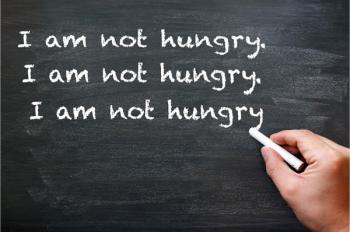[fusion_builder_container background_color=”” background_image=”” background_parallax=”none” enable_mobile=”no” parallax_speed=”0.3″ background_repeat=”no-repeat” background_position=”left top” video_url=”” video_aspect_ratio=”16:9″ video_webm=”” video_mp4=”” video_ogv=”” video_preview_image=”” overlay_color=”” overlay_opacity=”0.5″ video_mute=”yes” video_loop=”yes” fade=”no” border_size=”0px” border_color=”” border_style=”” padding_top=”20″ padding_bottom=”20″ padding_left=”” padding_right=”” hundred_percent=”no” equal_height_columns=”no” hide_on_mobile=”no” menu_anchor=”” class=”” id=””][fusion_builder_row][fusion_builder_column type=”1_1″ background_position=”left top” background_color=”” border_size=”” border_color=”” border_style=”solid” spacing=”yes” background_image=”” background_repeat=”no-repeat” padding=”” margin_top=”0px” margin_bottom=”0px” class=”” id=”” animation_type=”” animation_speed=”0.3″ animation_direction=”left” hide_on_mobile=”no” center_content=”no” min_height=”none”][fusion_text]
The following is a self-reported slip excerpted from a patient’s checklist:
The Slip: I basically did not [follow my] fast this week
Doing at the time: We were on spring break
Thoughts before and after: Food really didn’t taste as good, or “feel” as good eating it as I thought it would!
Feelings before and after: It wasn’t worth it!
Future strategy: try harder to refrain – it isn’t forever!
Was it “spring break” on your weight loss program last week? Maybe next week? Sometime in almost everyone’s weight loss program it’s “spring break”. Why do we tend to be “all on” or “all off” our weight loss programs? So many begin with good intentions Monday morning but can’t make it past break time Monday afternoon and then just quit. Behavioral scientists call it “abstinence violation effect”, put simply, “one slip and we’re through”.
Our attitudes about relapse have been colored by older moral overtones. Relapse meant to backslide into bad habits, particularly after a period of abstinence. Too many see relapse as a dead end, a failure instead of a stage in the process of change. Relapse periods tend to occur during negative or positive emotional changes. They also occur under social pressure. A common acronym for identifying conditions that may lead to relapse is HALT (Hungry, Angry, Lonely, Tired). Relapse often occurs when we are either Hungry, Angry, Lonely, or Tired.
Scientists studying abstinence violation effect have pointed out that this “all or nothing” view can lead to total collapse. We often point out, “perfection is the enemy of good,” which highlights the need for realistic expectations and generous helpings of self-forgiveness! The abstinence violation effect is especially dangerous to behavioral change when people attribute the cause of their lapse to uncontrollable factors, which in turn heighten feelings of hopelessness and loss of control. Helping patients gain control of their relapse triggers can decrease relapses and empower patients to make lasting changes in their environment and in the way they cope with external circumstances.
Another excerpt from a patient’s checklist:
I feel like I have really made some progress in the past few days. I stop and really question myself. (I talked about it before, but I didn’t really put it in action). I sometimes have to write to myself that, ‘I am not hungry’, kind of like Bart Simpson on the chalkboard, 500 times… ‘I am not hungry, food will not make this problem go away,’ and by the time I get to 300 or 400 I begin to believe it.
I love this patient’s strategy. It demonstrates a concrete, executable strategy for dealing with the urge to eat, which, if we’re honest, can sometimes be overwhelming. It also interjects humor into a topic which can be daunting and depressing. So, BRAVO. Write on the chalkboard, talk to yourself, do whatever it takes to break the link between your triggers and the behavior we are trying to avoid.
This leads to our discussion of relapse prevention and self-efficacy. This is an ongoing process of identifying your triggers, creating plans to minimize their effects, and building habits that will put you back on track when you slip. Everyone slips in some fashion, but with planning, you can avoid the fall which leads to quitting.
Relapse prevention is best seen as an ongoing process, a journey with many choices that Professor Alan Marlatt, Ph.D. (author of Relapse Prevention: Maintenance Strategies in the Treatment of Addictive Behaviors) dubbed “forks in the road”. Helping you develop your own relapse prevention plan is critical to your long-term success.
Ten Ways to Mend Your Cheating Heart (adapted from Dr. Marlatt’s work):
- Develop an understanding of the relapse process and the behavior chains that lead to relapse.
- Assess and enhance your motivation with emphasis on self-efficacy (small steps toward success) and realistic expectations.
- Learn to anticipate high-risk situations and plan coping strategies and skills to deal with them.
- Identify and change our rationalizations and negative self-talk that sabotage our efforts to maintain behavior change.
- Reframe lapses as mistakes and learn from them instead of seeing them as defeats that disable positive changes.
- Develop alternatives to unhealthy eating behavior (exercise, relaxation) that form a balanced life-style.
- Step back and see the “big picture” in relapse situations so that you can form more effective strategies and skills for change.
- Enlist others who can support your efforts at change, particularly in relapse situations.
- Modify unrealistic long-term goals and instead focus on achievable short-term goals.
- Enhance your awareness of healthy or unhealthy life-style habits and their consequences.
Use these ten steps to assess your weight loss plan and help yourself “get back on track” when you stumble. This week write some notes on how you can apply these steps in your plan and see your confidence increase.
This article was originally published in a two-part broadcast of the Health-e-Thoughts Newsletter (distributed by betterMD.net on March 31 and April 7, 2004)
[/fusion_text][/fusion_builder_column][/fusion_builder_row][/fusion_builder_container]








Leave A Comment
You must be logged in to post a comment.